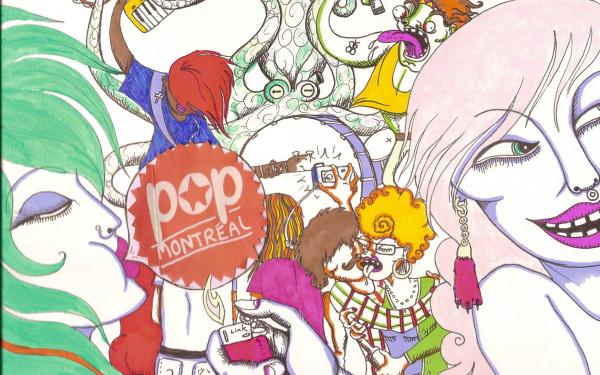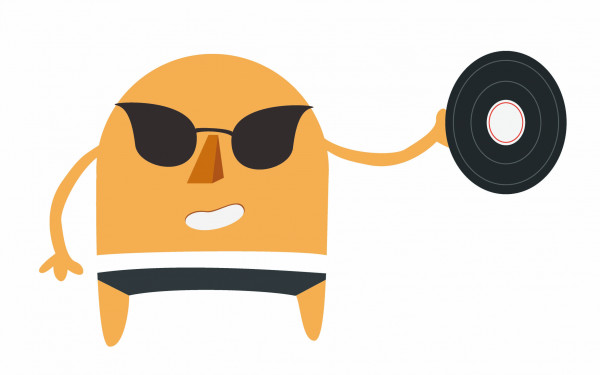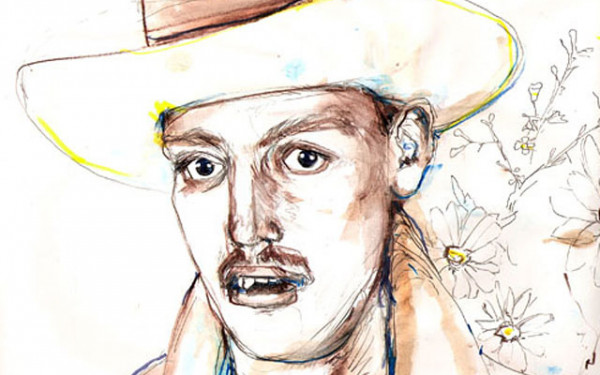The Evolution of a Festival
A Decade Later, POP Montreal is Still Surprising
Opera. Educational symposiums. R. Kelly covers. Even a sporting event.
If there’s one umbrella under which these disparate activities can occur, it’s POP Montreal’s. The festival is now in its 11th year, and the group of friends who started POP in 2002 has seen it evolve into a year-round operation that extends far beyond the week of concerts in late September that it used to be.
“Our festival is more integrated into the rest of the city,” said Dan Seligman, POP Montreal’s creative director. “We try to discover these old gems, venue-wise. Like, we have some church basements and old community halls.”
With the newly built Quartier des Spectacles, Montreal’s valuation of itself as a festival hub is literally set in stone. For POP, part of its appeal is that it doesn’t take place in the center of the city like other festivals.
“The spirit of the festival is discovery,” said Seligman. “It’s quirkier, more about young emerging bands that are at the beginning of their careers. So our venues—Casa del Popolo, Barfly, Divan Orange, Les 3 Minots—are small, 50 to 100 people.
“So it’s a much different way to experience music. And because we have 40 or 50 venues, it’s about going to different venues and moving around. You can’t really stay in one place.”
The venues for POP are mainly in the Plateau and Mile End, but they also extend to Rosemont, Parc Ex, the Village and even all the way to the Concordia ghetto.
The community aspect of the festival doesn’t just apply to its venues; it’s also partly how the organizers coordinate the lineup. People they’ve worked with before, friends of the festival and the musical tastes of the team help dictate the lineup.
“[We] used to draw posters for POP and also put the posters up,” said Alaska B from first-time POPers Yamantaka // Sonic Titan. “So we’ve all kind of known each other for a while.”
“[It’s a] guilty pleasure; I’m a fan of American Idol and I love R. Kelly.” -Dan Seligman, Co-Founder and Creative Director POP Montreal
Yamantaka // Sonic Titan will be performing Opera 33 at POP—a rock opera about warring drag queens. They’re based in Montreal and Toronto, and have been performing in the city for five years. The term “Noh Wave”—a portmanteau of no wave and Noh, a Japanese form of opera—helps the group of interdisciplinary artists break away from expectations.
“We’re using synchronized lighting that we built ourselves. Kind of a new media experiment. Combined with synced video.”
Aside from concerts, POP has a full roster of music- and art-related events. One of the standouts is David Byrne and Win Butler of Arcade Fire discussing Byrne’s new book in the context of their own experiences with music.
The event is one of POP Montreal’s symposiums, which was organized thanks to personal connections and happy coincidences. The “How Music Works” symposium is being presented by Librairie Drawn & Quarterly at the Ukrainian Federation.
“David Byrne’s schedule just seemed to line up perfectly with our festival,” Seligman said. “And he was releasing a book […] and because he has a relationship with Win, we asked Win if he wanted to do the conference and he agreed to it.”
This year’s schedule is a paperback book that looks like a novella, so deciding what to see may be a challenge. Seligman said it could be frustrating—and a bit overwhelming—but he has his highlights. Among them is a night of R. Kelly covers, starring former American Idol contestant Jacob Lusk, called Jacob Lusk & The R. Kelly All-Stars.
“[It’s a] guilty pleasure; I’m a fan of American Idol and I love R. Kelly,” he said.
Over the past decade, the festival has grown to the point that it includes a film showcase, the local artisan fair Puces POP, the symposium series, an art showcase, a Kids
POP segment and even a basketball game between POP musicians and ball players from Concordia and McGill.
Seligman said the POP sprawl all evolved organically.
“We did it because we thought it would be fun, it would be a challenge and we love music. It developed out of that initial interest. We’ve become more organized, hopefully learned from our mistakes and grown, have bigger staff, and pay people now.
“But every year it’s a process where we do everything we can to make things happen. Then when the festival is done we think about what we can do to move forward the following year.”

_900_583_90.jpg)





1__600_375_90_s_c1.jpg)